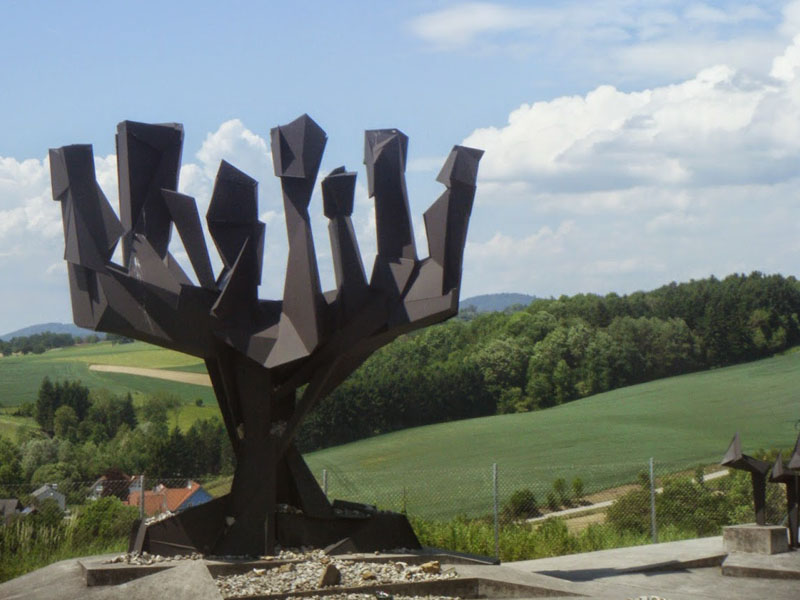Studying the Holocaust in Europe

Rowan Meredith is a UVic Slavic Studies student who attended the 2014 I-witness field school and is currently immersed in a summer co-op at the Auschwitz-Birkenau Memorial Museum. She sent these "notes from the field" while still in Europe.
In the fall of last year, I was walking the halls of UVic, when I happened upon a poster advertising the May 2014 I-witness Holocaust Field School with the Department of Germanic and Slavic Studies. The chance to spend three weeks travelling through Germany, Austria and Poland learning how the Holocaust is memorialized in Central Europe sounded incredible.
And even better, the program description also noted an opportunity to stay on in Europe and complete a summer co-op term at the Auschwitz-Birkenau State Museum. Little did I suspect just how profoundly this immersion in Holocaust studies would affect me.
The I-witness program started with one week of classes at UVic discussing readings about the memorialization of the Holocaust and listening to survivor testimonies first-hand. We then flew to Berlin, where we spent our days visiting memorials and museums and meeting with other student groups from Europe. Emotionally exhausted by a barrage of images and stories, we found ourselves sharing a wide range of thoughts and feelings. Our cultural and personal biases were illuminated and challenged by our experiences, observations and encounters, and many of our frameworks of belief were torn down. Only now are they starting to be built anew.
At the end of May, I left the I-witness group and moved to Oswiecim, Poland to volunteer at the Auschwitz-Birkenau State Museum. I write this from the former camp commander’s office, where I will be living until the end of the summer.
Every day, a new task awaits me: from preparing 70-year-old straw mattresses for display and sorting artifacts for collections, to transcribing video interviews of survivors. The experience of photographing and labelling spoons confiscated from the belongings of families arriving at Auschwitz can be chilling – and certainly causes one to reflect in a more visceral way than any history lecture can. Throughout all of the tasks, I work with dedicated and multi-lingual museum staff who offer a breadth of insights into the ways in which different communities view the work of remembering the Holocaust.
Throughout both of these experiences, I have had the opportunity to make friends from across the globe. Whether they be coworkers, classmates or roommates, I have met people from Taiwan, Norway, Germany, and the United States.
The understanding I have gained about the Holocaust from people with such varied backgrounds and perspectives has been tremendous. I could not have asked for a better Holocaust education, and I am more motivated than ever to work to prevent genocide and human rights violations worldwide.
The Holocaust may seem far removed from our daily lives; yet, while our cohort was studying in Cracow, we read in the Times Colonist that racist and antisemitic graffiti had appeared on the streets of Victoria.
This is a reminder there is much more to learn.

